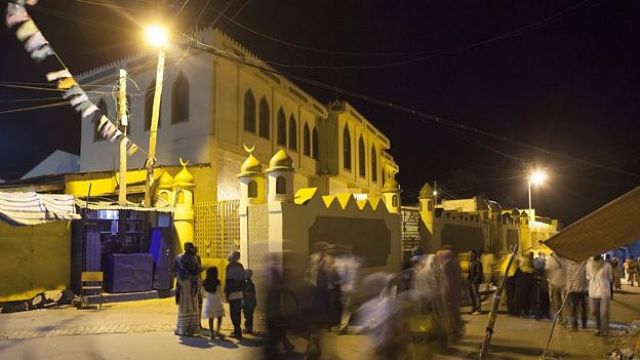 As the UNESCO-recognized Ethiopian city of Harar marks its 1,010th anniversary, the BBC's Emmanuel Igunza explores its unique heritage.(Getty Images)
As the UNESCO-recognized Ethiopian city of Harar marks its 1,010th anniversary, the BBC's Emmanuel Igunza explores its unique heritage.(Getty Images)
Harar – a long history:
Full Ethiopian Timeline
One of Africa’s best kept secrets – its history
The city’s fortified walls, built between the 13th and 16th Centuries, even have small holes in them to allow the hyenas to enter the city at night.
The daily hyena feeding spectacle is just one example of this city’s unique heritage.
“This is one of the world’s ancient civilisations,” local historian Abdulswamad Idris tells me.
“Some of the mosques you see here were built in the 10th Century.”
Early convert to Islam
Harar is a city that goes by many names, from the city of saints to a living museum, while some consider it to be Islam’s fourth holiest city after Mecca, Jerusalem and Medina.
It has even been called the city of peace, a name I spot on one huge neon sign as I enter the town.
Read the full article at BBC.com »
—
Join the conversation on Twitter and Facebook.

























